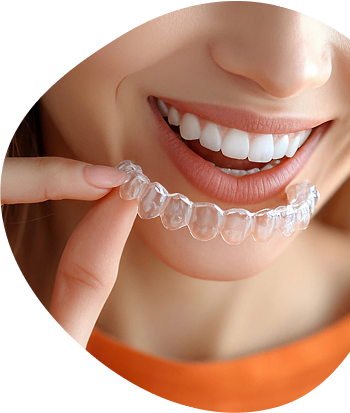When your dentist asks you if you floss regularly, do you cringe and look away, or say “YES!” emphatically? If you’re not doing it regularly, you’re not alone. US News reports 69% of people either don’t floss daily or never floss. But, good news, it’s an easy and healthy habit to adopt, and it’s never too late to start!
Flossing is important to help remove food particles that attract bacteria that form plaque (that sticky, hard-to-remove film) that can adhere to teeth in just 48 hours, which can result in gum disease and decay. That simple string of dental floss is an easy and quick method to help.
Let’s look at some reasons why people DON’T floss and see how we can change our habits.
- “It takes too long” – Flossing only takes about one to two minutes. Brushing your teeth takes two minutes, twice a day. Six minutes a day on your oral hygiene isn’t overly time-consuming. Grab a digital timer or set a timer on your phone if it helps.
- “My gums bleed” – Flossing actually reduces bleeding gums. It seems counterintuitive, but the more you floss, the less bacteria your body tries to fight off and will quit sending blood cells to the area to fight it off. Healthy gums don’t bleed or hurt when we floss. So if your gums bleed, it’s time to pick up the floss, not avoid it.
- “It’s too hard” – Some people don’t have the dexterity to floss with regular floss. That’s where floss picks, you know the ones with the “Y” of floss on one end, come in handy and make it much easier. Regular floss is best because you can form a “C” around each tooth to get better coverage, but in a pinch, picks are better than nothing.
- “I don’t think it’s necessary” – Flossing is critical to oral health. All those spaces in between teeth that your toothbrush can’t reach can allow bacteria in and cause serious problems. Did you know one of the most common places cavities form is in between teeth?
Good oral hygiene not only reduces tooth decay, but it also reduces tooth sensitivity, the likelihood of cavities and need for fillings, helps you keep your teeth instead of needing crowns and dentures, and keeps your breath fresh (which may make you more popular with your friends!) It also lowers your risk of cancer, heart disease, and stroke, Type 2 diabetes, and even Alzheimer’s disease.
Brushing your teeth twice a day, flossing once a day, drinking water between meals, and seeing your dentist on a regular basis will all help in your fight against tooth decay and disease.
Are you looking for a new dentist or ready to get back on track? We are here to help you and your family enjoy the benefits of great oral hygiene. Reach out to us to schedule your next dental checkup.










.png)


